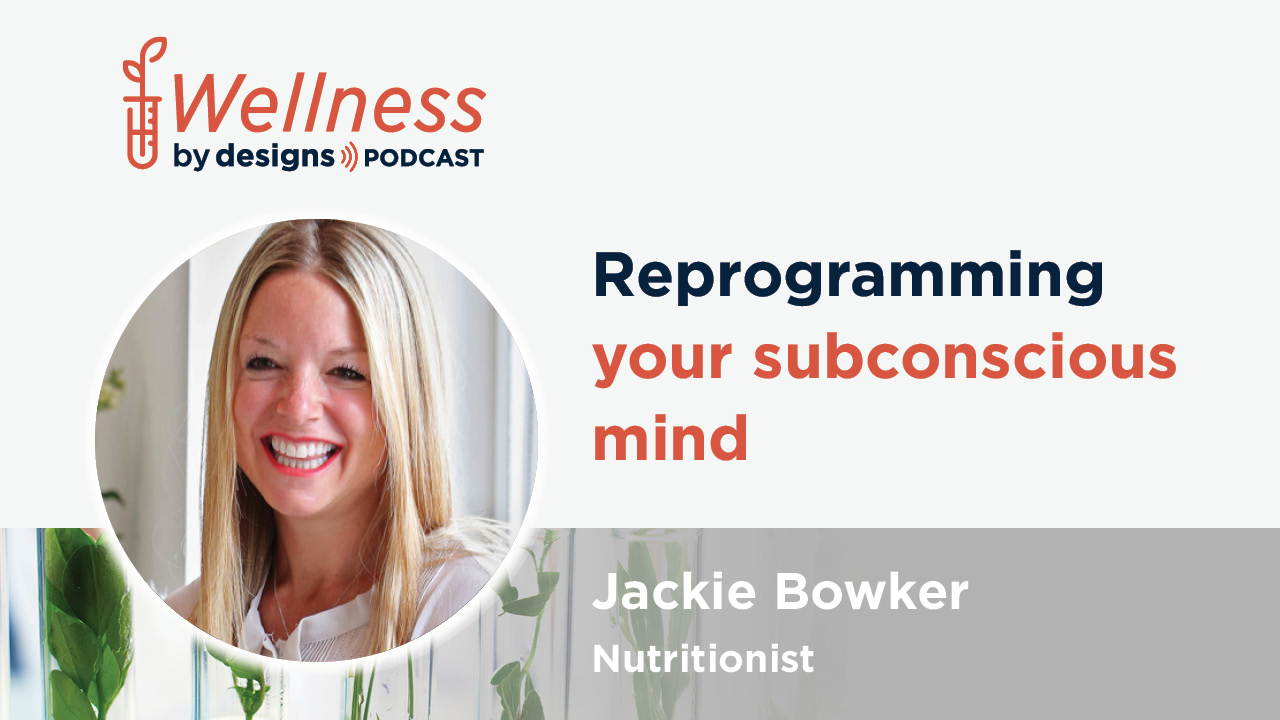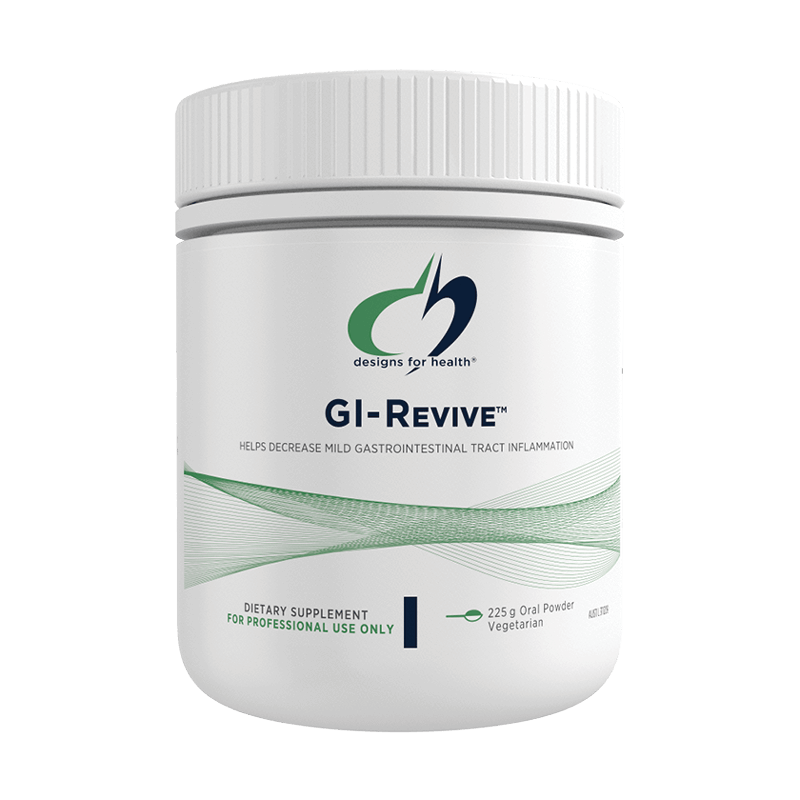

Reprogramming your Subconscious Mind
Joining us today is the CEO of the Global Feel Better Institute, Jackie Bowker and today, she is talking about reprogramming your subconscious mind. Jackie, along with her team at the Global Feel Better Institute, teaches people how to feel their best both in body and mind.
About Jackie:
I am the CEO of the Global Feel Better Institute; we are on a mission to elevate the standard of healthcare publicly and professionally. My proprietary 7 Feel Better Factors create radical transformations for people. We have a 12-week certification for practitioners – the first of its
the kind which is a fusion of Functional Medicine & Health Coaching to be a super coach and truly create the radical transformations our clients so truly deserve.
Connect with Jackie:
oining us today is the CEO of the Global Feel Better Institute, Jackie Bowker and today she is talking about reprogramming your subconscious mind. Jackie, along with her team at the Global Feel Better Institute, teaches people how to feel their best both in body and mind.
About Jackie:
I am the CEO of the Global Feel Better Institute, we are on a mission to elevate the standard of healthcare publicly and professionally. My proprietary 7 Feel Better Factors create radical transformations for people. We have a 12-week certification for practitioners – the first of its
kind which is a fusion of Functional Medicine & Health Coaching, to be a super coach and truly create the radical transformations our clients so truly deserve.
Connect with Jackie:
Website: https://feelbetterinstitute.com
Facebook: jackiebowkernutrition
Instagram: @jackiebowker
Transcript
Introduction
Andrew: This is “Wellness by Designs,” and I’m your host, Andrew Whitfield-Cook. Joining us today is Jackie Bowker, and she’ll be chatting to us about how to reprogram your subconscious mind for abundance. Jackie, welcome to “Wellness by Designs.” How are you?
Jackie: I’m so well, and I’m so excited to be here. It’s a real privilege. Thank you so much, Andrew.
Andrew: I guess it’s part of just living in Queensland. How much do I Skype about this?
Jackie: We have had a few conversations about how perfect Queensland is. Not to make anyone else feel…
Andrew: Yeah, yeah. Nothing against anybody else, but hey. So, Jackie, you are CEO of the Global Feel Better Institute. Can you take us through, well, I guess first, its mission, what’s it about?
Jackie: Absolutely. Thanks for asking. We are so passionate about our mission. So the Global Feel Better Institute was designed to help people go from feeling bad to feeling better. We are focused on creating a world full of love, kindness, and abundance for all of humanity. And really what we think is that a lot of people don’t take the path of least resistance. It’s pretty straightforward to go from feeling bad to feeling better. So we’re really focused on trying to help people understand how to do that. And we’ve designed what we feel is a really easy, straightforward process to do that. So, yeah, we’re super excited about helping really elevate the standard of healthcare, both personally and professionally, and helping people realize that there is an easy way to go from feeling bad to feeling better. So that’s what we’re all about.
Andrew: Okay. Well, that’s actually quite meaningful, what you said, because how many times have we heard somebody say, you need to go from there to there? But what you said is different. You said we show you how to, so there’s a lot of how-tos. And I’ve gotta say one of the very few people that for me was how-to was Andrew Matthews, who wrote this very simple book called “Being Happy!” You know, that was it, just being happy. I think there’s one now called “Happiness in a Nutshell,” but it was this a real, very simplistic view of, you know when you feel this or you do this and it results in that? Well, that’s because of this. What you gotta do is this. So there’s this real step-wise progression. Is that what you teach people?
Jackie: Yeah. Well, and I’ll break it down for you. And I love what you’re saying about how we can really simplify feeling happy, and to us, it’s feeling better. So for me, it’s about three things. The first is belief. So a lot of people spend a lot of time talking about how bad they feel. And what we teach is that talk therapy or joining support groups and hanging out in groups where you just get to talk about how bad you feel, all that does is create a lot of momentum around that. So, you know, believing that you want to feel better and not staying bad and believing that you’re worth it, that you matter, that you’re lovable, that you deserve to be loved, and that you deserve to feel better is really, really important.
So creating a lot of momentum around what you want and not what you don’t want because even if I say to you at the moment, I’m in a lot of pain, I hate my body. You know, I look down and I’m disgusted by the rows in my belly. And these are comments that I hear people say, like they are disgusted in themselves. So that’s a really low vibe way to be. And compare that to, you know, I love living in the Gold Coast and I’m so grateful that I get to see the ocean and I love going to the park with my kids. And, you know, my team is so awesome. Like, there’s a real difference in that, that’s a high vibe place to be. So, you know, I suppose the belief is, you know, do you wanna hang out in a low vibe place or do you wanna hang out in a high vibe place? So the belief is really important because if you believe that you are always going to be sick, or that you’re always going to have anxiety, or that you are always gonna have your autoimmune condition, that’s exactly what you will attract towards yourself. And you’ve probably heard of the law of attraction. So, you know, this is basic physics and quantum physics.
And then we’ve got functional medicine side. So we combine that with the why. So this deep investigation of why you might be feeling that way. So we have to collect data. So I’m a scientist. You know, I went to uni, I’ve got a science degree, and really I love that because it’s about understanding what’s really going on from your body, listening to your body. Your body’s always giving you beautiful messages. It’s not pain from, you know, maybe your menstrual cycle or your joint pain, these are beautiful messages. Your body’s just putting its hand up and saying, “Hello, I need some help here.” So this deep investigation. You know, what does your blood chemistry say? What does your DNA stool test say? You know, what are your hormones talking to you about? And we can collect…you know, we can do lab testing around that through, you know, understanding what’s going on through your urine, through your blood, through your stool, and through how you are thinking and feeling.
But unless we do that deep investigation and we ask our body what’s actually going on, you know, we’re not really doing ourselves a good service. And then the third component that we teach is all about a personalized plan. So, and that’s where we go from feeling bad to feeling better. And that might be in your gut health. It might be in your relationships. It might be in the stress going on. But we have to combine those three. And if we don’t combine your belief with the why, with the deep investigation, with the personalized plan taking action and celebrating action, then, you know, we’re not really living our best possible life, like doing the best possible job that we can to help us go from feeling bad to feeling better. What are your thoughts on that?
Andrew: Well, there’s a maestro going around my head, and there’s both negative and positive to this. So, for instance, I’ve got pictures of people who have lived a lifetime of abuse, and it’s not gonna be a thing little switch to go. I now feel happy. All of my ills and my cares have melted away. It’s not gonna be like that. But I do appreciate what you say, it’s from feeling bad to feeling better. It’s not gonna overnight glow. And there’s a process to that, which involves work. And sometimes that work can be extremely painful. However, I take your message about the pain is the message that your body is talking to you about. And, you know, a psychotherapist would talk to you, would understand this, that message, the hypnotherapist, the psychotherapist, the psychologists out there will talk readily about the messages.
So I really appreciate what you’re trying to do. There’s this argument, this battle I’m having with myself though about there are some things that just can’t be fixed, chronic melancholic depression, like the true bottom-of-the-barrel depression, where nothing, no antidepressant, no ECT, no psychotherapy works for these people. But then I come back to what you’re saying, and it’s not feeling fantastic overnight, but it’s feeling better perhaps. So along that lines, I guess you’ve got to have a baseline and then a therapeutic intervention assessment. Correct?
Jackie: Absolutely. And I think you’ve hit the nail on the head in so many areas there with that example. So, you know, when we’re feeling bad, and the depression is a great example, there’s a lot of momentum around that because that person might’ve been living that for a long period of time. And so, you know, it’s really difficult to just have the voice in your head going, I shouldn’t feel depressed. I don’t wanna feel depressed, depressed, depressed, depressed, depressed, depressed. So the language, the choice of words that we use and the feeling of how we feel about that, that has a lot of momentum. Because if we sit in a place where we feel depressed and we’ve been labeled with depression, there’s a lot of momentum around that. And so you’re absolutely right. It would be really hard to just wake up and, you know, be critical of yourself because you couldn’t feel depressed.
So one of the tools that’s fantastic is to grab for something that makes you feel really good. So I always talk to my clients and my team, and my family and my children about, tell me something that makes you feel really good. And if you can grab for that and that might be, you know, an example is my daughter, you know, she might be really upset because something’s happened at school. Someone said something to her that’s made her feel really bad about herself, made her feel like she can’t do something, or her brother’s often telling her things like that. And so instead of providing, I suppose, empathy and sympathy for her and saying, “Oh, it’s okay. You know, everything’s gonna be okay.” You know, there’s a lot of momentum around that. So that’s how I used to be as a parent. You know, I’d make her feel okay and comfort her and nourish her that way.
Now, the tool that I used to implement is tell me something that makes you feel really good, Coco. And she’ll immediately, she’ll say Kindi Kids. It’s her latest toy of choice that she’s asked Santa for, Kindi Kids. And, “Oh, awesome. So which Kindi Kid do you love?” And she’ll say, Marsha Mello. “Oh, Marsha Mello. Like, tell me about Marsha Mello,” and she’ll start about Marsha Mello and immediately, she’s in a better place. And it doesn’t mean that other pain, so in your story, the depression has gone away, it just means that the person is more aligned, their left and right hemispheres of their brain are more whole brain, which makes us more rational. And when we are rational, we can make a better plan towards what the problem was in the first place. So I always ask people to grab for the next best thing that makes you feel good. And when you’re feeling good, the momentum is then created around that instead of that thing that was making you feel bad.
That’s a tool that is a really nice one to practice and like anything, you know, that neuroplasticity is like a muscle. So the more you get into the practice of feeling good and that person that has the depression, that nothing seems to be going right for that person, if there’s just one thing that they can come back to, that they know makes them feel good, and it might be making themselves a cup of coffee or, you know, taking their dog around the block, you know, or the smile that you get from the dog when they wake up in the morning and they jump up for a cuddle. You know, anything, if they can practice getting into that place, then they will start to create more momentum around feeling good.
Andrew: Gotcha. Okay. So I’m beginning to understand more here. So, for instance, Lise Alschuler, who deals with cancer patients and helps them through their care and is sometimes faced with some devastating news from a patient. And so Lise has this incredibly positive mind where she will say, if the patient says, “I’m afraid of dying,” she’ll flip it and say, well, isn’t that because you love living so much? How about we concentrate on that and what you’ll get out of living and where you would like to aspire to, what sort of things, you know, like a daughter’s graduation? Those sort of life events that people can gravitate
towards. And the other one that you said was really important, and that was to practice. It doesn’t just come like the flick of a switch. It becomes out of work.
Jackie: Absolutely. And I think the other thing is it doesn’t have to be sometimes when there has been a traumatic event. I think sometimes there’s a preconceived notion that the person has to do a lot of therapy. It’s gonna be really hard. It’s gonna take a long time. So, you know, that’s a limiting belief. That’s a belief that you’ve got that it might take you a long time to get from feeling at point A to point Z. And we’ve been shown time and time again, you know, about all the miracles that happen. So really helping understand that…and that’s why reprogramming your beliefs can be so powerful than, I suppose, what I call talk therapy, which is talking about, you know, symptoms, talking about what’s not going on. So I loved your example about the daughter’s graduation and, you know, putting yourself, practicing those positive experiences because it will be, you know, what you want it to be. You create, you are responsible for designing and creating your own reality. So which reality do you want to create?
Andrew: Yeah. Yeah. There was another thing that you said, and…forgive me, sorry, another example that was going on in my head. And it was talking about something that they absolutely love to do. And it was a lecture given by Zam. I can’t remember her last name. She was the wife of David McLeod. But she was talking about PTSD, which I’ll change to PTSI, so post-traumatic stress injury, something that can be healed. And where they focused on for this woman that had come from war-torn Bosnia, the thing that gave her joy, that she missed, that she was really grieving inside about was her garden. And so they created a garden. I’m gonna get teary. But she created a garden and so this woman was able to focus on something that gave her joy and was more present with her feelings.
Jackie: I love that so much for so many reasons because I have a lot of…when I work through a protocol with a client, one of the questions I ask is what brings you joy? And it seems like such a simple question. And they have shown in, for example, thyroid imbalances, that one of the ways to rebalance the body if you put a line down the middle of a page and on the left side you write, what brings me joy? And on the right side you write, what don’t I like doing? And I ask people to do more of what’s on the left and less of what’s on the right. And, you know, what’s on the right might be, I don’t like emptying the dishwasher or, you know, I don’t like cleaning the toilet. And on the left for my male clients, it’s always one of a couple of things, I like watching a game of footie, or I like playing golf. And the women quite often, I have women that like spending time in the garden. And I love my gardeners so much because gardening, you get into that place of flow. You know, you’re in the vortex, you’re in the place where you are completely, I suppose, open to what might be coming. And, you know, that’s why we get ideas in the shower. It’s the same thing.
So when you’re gardening, you’re in a place of attracting abundance because you are just completely in your, I call it, your happy place. But yeah, always pick a couple of things that you really enjoy doing. And we ride it into the protocol, gardening, and we make a commitment. “How many times do you think you can garden a week?” You know, and they’ll say, “Oh, I can garden five or six times.” I’m like, “Well, let’s not set you up for failure. Let’s set you up for success. You garden once a week.” And we are very concrete about it. How many minutes do you think you can garden for? What day are you gonna do the gardening? And we set that task for them so it’s simple, powerful, effective, achievable. And then they do their 15 minutes of gardening on a Sunday at 2:00 p.m. and we schedule it, and then they celebrate because they did it. And, you know, maybe they got to another two times per week. And so they have overachieved their goal.
And so how much that is such a high vibe place to be because they’re so proud of themselves. You know, we’ve celebrated our success compared to if we hadn’t set the goal, half an hour of gardening five times a week, I mean, life gets in the way. So, you know, and we’re not in a bit of a rant, but I love the gardening example. And it’s been good to have a discussion about simple, powerful action steps that we can take because celebrating is really key to building more and more momentum and practising feeling better.
Andrew: And you know what, you talk about celebrating one’s own things, one’s own achievements. And it’s almost like unless you’re an Olympic athlete, you’re not allowed to celebrate, you know, it’s almost like that tall poppy syndrome that we have. So I guess the question is why do you think we need to be really focused on elevating the standard of healthcare with other practitioners? And like, forgive me, but never in my entire education was I ever taught goal setting ever. Never was I taught about being happy, about choosing that mindset. And it was quite by accident that I came across those books. Read another one that was diabolical, but anyway. But forgive me, Andrew, about this.
Jackie: Yes. Pardon me for interrupting. But I would challenge you and say that it wasn’t by accident. It was perfectly architected that way by you because that was the next stage of your expansion and your evolution.
Andrew: Yeah. Got it.
Jackie: So it’s so important that the words that we choose for ourselves, but, you know, I love where you’re going with it. Absolutely.
Andrew: Okay. So a question, a question. How often do you speak to clients, customers who aren’t ready, and how do you integrate that? How do you get around that?
Jackie: I suppose I believe, I know in my heart that I attract the clients that are perfectly ready to hear the message and to go through their journey at the right time. And I also believe that, and I tell people this all the time, I learn as much from you. I’m learning as much from you now as you are from me, and the listeners that might be listening to this conversation, they will listen because they are there to hear the message that they need to take out from this conversation. So when I’m talking to somebody, the timing has to be right, but generally, I find people come to me when…you know, they’ve found me not by accident. You know, they’ve stumbled across me or they’ve been referred to me and, you know, they’ll come and they’ll say, you know, “I love your work. I’m ready to do this. I don’t even necessarily really know what you do, but I know that we need to work together.” And that is just so perfect.
And your earlier question was about why it’s so important to elevate the standard of healthcare. And that’s both personally and professionally, and as you pointed out, you know, we go to school and we do the best that we possibly can with the information that we have. And, you know, we’ve had decades of being taught that, you know, the fats are bad or that, you know, cholesterol is bad, and all of these things that we now know we’ve evolved what we know about the body. And we are learning every single day. And so for me, I’m a lifelong learner. And so, you know, I did a science degree quite some time ago, and, you know, six years ago I bolted on a master of nutrition. I learned a lot through that. Then I went onto functional nutrition, and so I learned a whole lot more about the why and the deep investigation. And then I’ve bolted on all of these certifications and knowledge about how important our belief system is. Combining that with the coaching. So the goal setting and how to really accelerate people’s results.
So in terms of elevating the standard of healthcare, I think it’s crucial that we ensure that our primary care team, the people that we are collaborating with to design a personalized plan for us really are the right team for us. Because if they’re not asking those questions, if they’re not digging deep to find out why, if there are even natural supplements, if they’re putting natural supplements as a bandaid on, you know, a pain point, then we’re really not getting to the best place that we possibly can, but that starts with the patient. The patient is the future of medicine. You know, the future of medicine, the patient will be the doctor, and it is our responsibility to know that we are worth it, that we matter, even as a mom, I’m the head of health and nutrition in my household. It is my responsibility to have the courage to know that I matter, that my children matter, that my husband matter, and I need to learn this. So it’s not just always about, oh, that practitioner, you know, may not have those skills. It’s my responsibility to show up having done my research, understanding what my goals are, and then I need to find the people that can help me get there. Does that make sense?
Andrew: Yeah. Sure, it does. And I love what you also said about it’s not just an all-for-one program, you actually personalize their journey and their practice incentives, shall I say? Because everybody’s life’s journey is different.
Jackie: Absolutely. And, you know, we explore all the areas because, as you said, we’re all different. So we have to do a deep dive into gut health, into what people are eating. We have to understand what relationships people have in personal life, in their online life, in their work life, in their public life. We have to understand what I call the fundamentals, but how people are sleeping, what they’re drinking, hydration, and other diuretics. We have to understand… When I was very unwell quite some time ago and no one ever…I saw what I thought were the best practitioners in the country. No one asked me what I was eating, how I was drinking, how I was sleeping. You know, the work stress that I was under. We just didn’t have those conversations. And it’s really time for people to make sure that they’re having those conversations, but we have to combine it with action, an action plan that makes sense because we’re going from A to Z and, you know, that might start with, well, we have to do a gut reset, and we have to make sure that we nourish those adrenals.
And then we’re gonna tackle this, and then we’re gonna tackle that. But there’s a plan in place because when we know where we have to go when we know what that vision is, our subconscious, our inner being, or, you know, some people will call it God of the universe will always get us there the fastest and safest way possible. But how many times do we sit down and say, what do I want? And it’s so interesting how many people can’t answer that question.
Andrew: Yeah. Very, very true. And I love what you said about a plan because I’ll always remember, again, Liz, saying that an optimist is not somebody who blindly denies something bad has happened. An optimist is somebody who will take that in their stride and say, “Okay, this has happened. What do we do about it? How can I use this and benefit myself?” So I get where your mind is, but I also get because I still every now and again go into my negative thinking and the negative self-talk that creeps in. And even to practice simple things like, again, forgive me, Lise taught me this, about when you say the…what I thought about is when you say the word gratitude, it’s over there, but when you say grateful, it’s now personal. So I ask myself, so what am I grateful for? And then
I go through a list and it lifts. It’s really interesting how just that one word can steer you away from a negative mindset.
Jackie: And you’ve just demonstrated something that makes you feel good, something that makes you feel better, that you can grab onto when you notice that you’ve got some momentum around that internal chatter. You know, we’re humans and you know, that internal chatter is going on all the time and it’s an awareness. And what I love about internal chatter is it’s not necessarily a bad thing that you’ve got negative internal chatter. So let’s turn that around. What a gift that is? Because feeling that and being aware of that, you actually realize the contrast between…and you realize that you need to change. So, Andrew, you’ve gone to that you know you feel better when you start to realize what you’re grateful for. And I’m sure it’s probably I’m grateful for the ocean, I’m grateful for where I live. But imagine if the children in school, and I do this with my daughter, she does it so well. And she’s seven years old and I do not even remind her now. She reminds me.
I imagine if we were taught in school to wake up in the morning and greet ourselves in the mirror because, you know, what do you do in the morning? You probably get up out of bed. You probably go to the bathroom. You might wash your hands, probably blindly, still half asleep. But how is that that we are not greeting ourselves? “Good morning. I love you. I’m so grateful for you. You look amazing today.” And, you know, it’s like exercising that muscle. So, you know, people might sort of say, oh, I don’t look good in the morning. And, you know, I look half asleep and my hair’s all over the place. But if you can…what I like to do is move people from those I’m grateful for my bed, I’m so grateful for my blankets, I’m grateful for this amazing house that we’ve got, and then you get into that habit of being comfortable saying I’m grateful for, you know, a thing. You know, I’m so grateful for the foods that I choose to nourish myself with. And then we move you towards eyeballing yourself in the mirror and being so grateful for you. And then we move you to, I am worthy. I am lovable.
You know, going back to, you know, Maslow’s hierarchy of needs, we have basic needs of knowing that we matter, knowing that we are worth it. And when we have that level of self-respect for ourselves and self unconditional love, we will then go on to nourish ourselves with whole foods, with great sleep, with balance movement because we’re coming at it from a place of loving ourselves and unconditional love.
Andrew: Yeah. And just to put an extra point on that, loving yourself does not mean conceit. Loving yourself indeed properly is accepting yourself and being able to therefore love others better and care for others better. So there’s a whole thing we’ve gotta get away from this tall poppy, “Hey, you got tickets on yourself, mate.” It’s not about that. In fact, that’s a cover-up of, you know, people who blow themselves out of proportion. Well, that’s actually a cover-up, what do you call it? A defence mechanism for low self-esteem. People who have good self-esteem, they love themselves but it’s not what drives them at all.
Jackie: The most important person that matters in terms of what…I’m not saying this eloquently, but the most important person’s opinion is your own. So, you know, when we’re talking about, you know, I’m so passionate about the children and the future, you know, I’ve got a 10-year-old boy and he cares deeply what other people think of him. And this is even with all of the coaching, with all of my knowledge. And so it’s so interesting to me because I’ve got a 7-year-old daughter and she has, you know, a lot more innate, inner self-confidence and self-love. So it’s really working with us as individuals and helping people get to a place where we truly deeply appreciate ourselves. And then, you know, it’s very Australian, I find, that tall poppy syndrome. You know, if a 10-year-old boy says, you know, “I’m really good at footy. Like, I really rock that game.” And you’ll get five boys that are like, “Oh, no, that was pretty crap.” So we’ve got to move away from that because we have to develop resilient children who truly, truly believe that they are so awesome because we believed that when we came out of the womb.
We had unconditional love as babies. And in that first seven years, when we hear someone say something to us, you know, everything, we are like a computer, we download everything, feelings and words, and that’s where these negative patterns and behaviours come from. So we have to understand that to be able to move forward.
Andrew: Yeah, absolutely. A little tip for somebody out there about if they have problems accepting compliments. An old Chinese proverb was something akin to…forgive me, it’s not verbatim, but it’s by accepting a gift, a compliment, a physical gift, whatever, you give honour to the person who gave it to you. So the reverse of that is if you don’t accept a compliment, you’re actually rebutting the person’s kindness who gave it to you. So don’t be so mean. Be kind and accept it. It’s funny how we go through life with these things. But anyway, I need to ask you, what’s next with your adventures because you and your husband, you seem to be this grasp life, you know, what do you call it? Carpe diem. That seems to be your motto. Am I right?
Jackie: Very, very kind. You know, we are so passionate about living a life of service and helping people to get to a place of love and kindness and abundance. And so what we have done is create a suite of programs. So we’ve got a beautiful community called the Feel Better Together Community. It’s a place where you can get all of your healthy recipes and things that just are really useful. You know, it’s like, how do I make a birthday cake that doesn’t have any sugar, or what can I do to whip up a one-pan meal? So we provide all of your recipes and meal plans and just try and make it easier for busy people, which we are as well, to put yummy, yummy food on the table. What is on your…and indeed the fork is so important as you, you know, talk about with a lot of practitioners on this podcast. You know, it’s so important to live an anti-inflammatory life, and a really easy way that we can do that is the choices that we make by the food that we eat.
So we love our community. We do monthly Q&A sessions. So you can get access to a practitioner and ask questions and we can manage it because we’re in a group environment. And we really want to foster learning from each other. I think that’s hugely undervalued. So my programs are group programs because I want people…I don’t want people to make the same mistakes I did. And I know I can learn from mistakes that other people have made. So we come together and you can ask your question and you can get an answer from a practitioner, but also we can learn from what others are asking. You know, it’s a whole thing when you leave practitioners and you’re like, oh, damn it, I forgot to ask this, this, and this. So we run programs like that in a group format, which we believe is really pioneering.
There are a lot of really strong group programs for things like type 2 diabetes. But there aren’t group programs for this functional medicine, spiritual coaching side, which is the programs that we offer. So we still do the deep dive, functional medicine stuff. We really wanna have a good look at your poop test and your blood chemistry and whatever else that we do to do that deep dive. But we put you in a group so that you front up and so that you are accountable because we know that you’re up to 95% more likely to be successful if you’re accountable to somebody. So by coming and fronting up and we have sessions all the time, it’s a really, really good way for people to move the needle on their results. And then what’s really exciting is next year, we are launching our corporate well-being programs. You know, we know at the moment companies are really struggling, staff retention is in an all-time low because of what’s happened over the last 18 months. And so we are helping…companies are really investing in their employees’ wellness and mental health.
So we are going into companies and helping them with our programs, which focus on the bullet yield belief system, the functional medicine side, and the coaching. And, you know, we have something really special to offer. So we’re excited about that.
Andrew: Jackie, I’ve gotta say, you’re making me really think here because I was gonna try and go into that negative space again, with regards to weight management. For instance, we know that group therapy, those businesses, and the two famous ones are Jenny Craig and Weight Watchers, the research has been done on them. So those programs that offer a group therapy session or care are the only ones that have shown longevity in maintaining weight loss. However, wouldn’t it be interesting to see rather than that, you know, negative, what do you call it? Negative art, agony art, rather than that group confessing their sins, if you like, and instead of that having a group that was elevating each other. Wouldn’t that be an interesting comparator?
Jackie: You got it.
Andrew: Love what you’re doing.
Jackie: It’s so true. Thank you. Yeah. I mean, that’s exactly right. That’s the conversation I have with the people that we bring into the group and we’re pretty particular. You know, we are not right for everybody because we focus on abundance. We focus on where you want to go and not where you are now. So it’s not a place where you get to talk about how much pain you’re in, or what you’re going through or the trauma of your past. It’s a conversation about what you want instead. So it’s a high vibe group. So yeah, I completely appreciate what you’re saying because as we talked about earlier, how you choose to feel is in your control.
Andrew: I’m loving it. Jackie, thank you so much for taking us through this today. This is actually really exciting and it’s lifted me. I feel more smiley inside. So, thank you.
Jackie: Oh, you’re smiling anyway. So that’s a massive compliment. You’re one of the biggest smiles of people I’ve ever met. So you’re wonderful, Andrew. What you give to the world, you know, your impact and your passion and your inquisitive nature, I think that’s one of my favourite things about you. You’re so interested and you ask questions and you genuinely want to know the answer, which is a really unique quality. And so I applaud you for that. And that’s why you’re so lovable.
Andrew: Thank you. Now I’m gonna go away and cry, but thank you so much for taking us through this today, Jackie, on “Wellness by Designs.” It’s been inspiring. Thank you.
Jackie: Thank you for having me. I so appreciate what you give to the world. Thanks, Andrew.
Andrew: And remember, thank you for joining us today. You can find all of the show notes and the other podcasts on…forgive me, the Designs for Health website. I’m Andrew Whitfield-Cook, this is “Wellness by Designs.”








 Essential Insights into Gallbladder Function and Care with Amie Skilton
Essential Insights into Gallbladder Function and Care with Amie Skilton Natural Strategies for Men’s Health with Naturopath Jason Mallia
Natural Strategies for Men’s Health with Naturopath Jason Mallia Exploring Extemporaneous Compounding with Diana Boot
Exploring Extemporaneous Compounding with Diana Boot